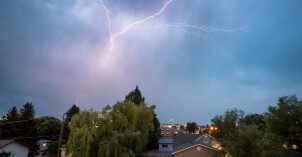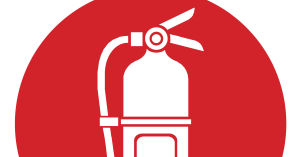Responsibilities of the Safety Office
The BYU-Idaho Safety Office is responsible for the following activities:
- Development of the written fire prevention plan for regular and after-hours work conditions.
- Immediate notification of the campus police and Rexburg Fire department, and the campus emergency operations counsel in the event of a fire affecting the university.
- Integration of the fire prevention plan with the existing general emergency plan covering the occupied facilities.
- Dissemination of procedures for reporting a fire, the location of fire exits, and evacuation routes to each employee.
- Provision of training with respect to drills to acquaint employees with fire procedures.
- Facility inspections and fire code compliance consultation.
- Training of designated employees in the use of fire extinguishers and the application of medical first-aid techniques.
- Facilitation of planning and training with campus police, university personnel and local fire officials to promote a coordinated response to fire emergencies and accessibility of equipment and resources needed for management of the fire scene and displaced persons.
- Monitoring fire response activities and communication of pertinent information to the university emergency operations counsel.
- Training of building coordinators with respect to evacuation procedures to ensure that:
- All employees are notified and a head count is taken to confirm total evacuation of all employees.
- When practical, equipment is placed and locked in storage rooms or desks for protection.
- Appropriate security protection is provided at fire scenes to protect persons and property.
Fire Protection Equipment
The following fire detection, notification, and suppression equipment is installed, inspected and maintained in operational condition in campus facilities.
- Fire extinguishers are installed pursuant to NFPA standards in all campus buildings. They are inspected on a monthly basis.
- Smoke and heat detectors are installed in pertinent campus areas and are inspected on an annual basis.
- Heat activated sprinkler systems are installed in many, but not all campus buildings and water flow is tested on a quarterly basis.
- Fire hose cabinets, although not required by current fire code regulations, are located in many older facilities.
- Warning horns and/or strobe lights are installed in campus buildings and are tested on an annual basis.
- A computerized notification system is monitored on a 24 hour-a-day basis by the university police department. The system has generator back up and a redundant capability.
- Emergency phones with direct notification to the university police communications enter are strategically located throughout campus and in all elevators.
- The University telephone system has an enhanced 911 capability that immediately notifies the university police communications center of the location of any emergency call.
Maintenance of Fire Protection Equipment
As indicated, campus fire protection systems are periodically inspected to ensure functionality by the university fire protection officer. Any maintenance issues are immediately reported to the Physical Plant fire systems maintenance technician through a computerized work order system and needed repairs are promptly accomplished.
The safety office web page has an electronic hazard reporting system that is accessible to all university students and employees. Individuals are encouraged to use the system to promptly report any observed hazards or needed equipment repairs. People can also telephone the safety office directly at 496-2481 to report observations.
Housekeeping Procedures
The university endeavors to control accumulations of flammable and combustible waste materials and residues so that they do not contribute to fire hazards. University waste generators should follow the instructions contained in the Toxic and Hazardous Waste Contingency Plan located on the safety office web page and periodically notify the safety office for the transportation and disposal of hazardous waste accumulations. At no time should individual waste generators accumulate more than 55 gallons of hazardous waste at their respective workplaces and they are encouraged to request removal and disposal whenever five or more gallons of flammable or combustible waste is generated. Hazardous waste shall be accumulated by the safety office at a remote campus site and shall be disposed of according to EPA and DOT regulations by a contracted, licensed transportation, storage and disposal company.
Regulated accumulations of flammable and combustible liquids should be stored in UL listed flame retardant storage cabinets pursuant to fire code regulations. Any questions concerning regulated accumulations should be conveyed to the safety office (208-496-3002).
All university employees are expected to maintain their work areas in a relatively clean and orderly condition so as to minimize the unwarranted accumulation of combustible materials.




